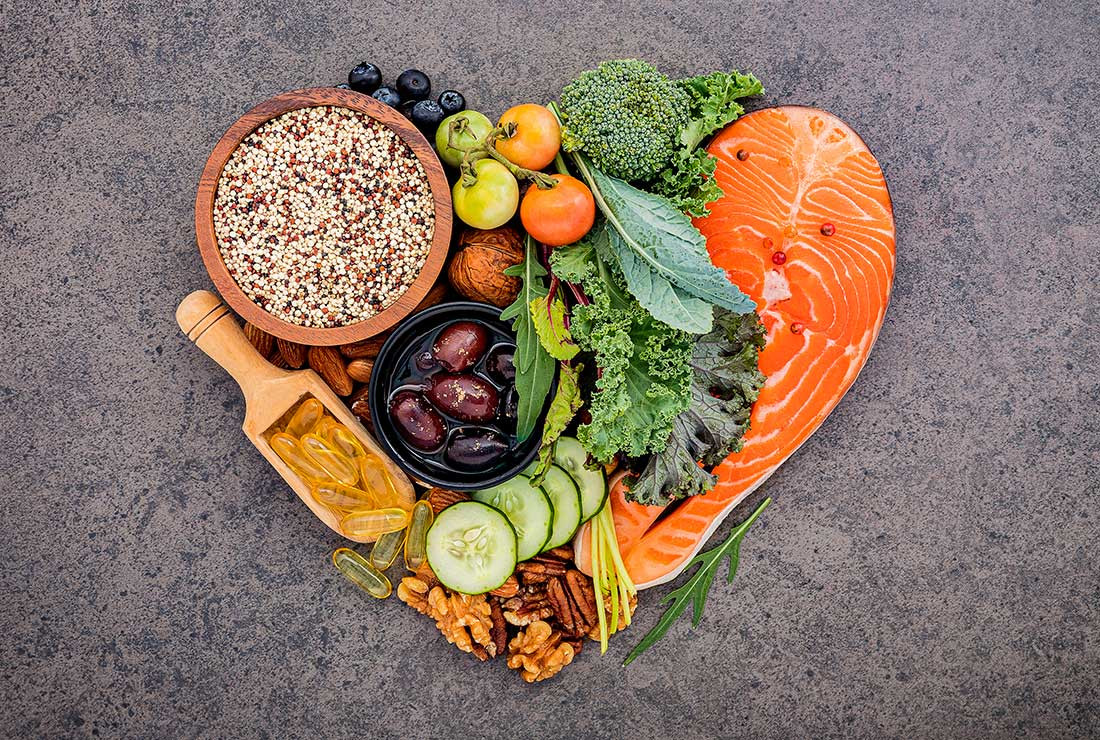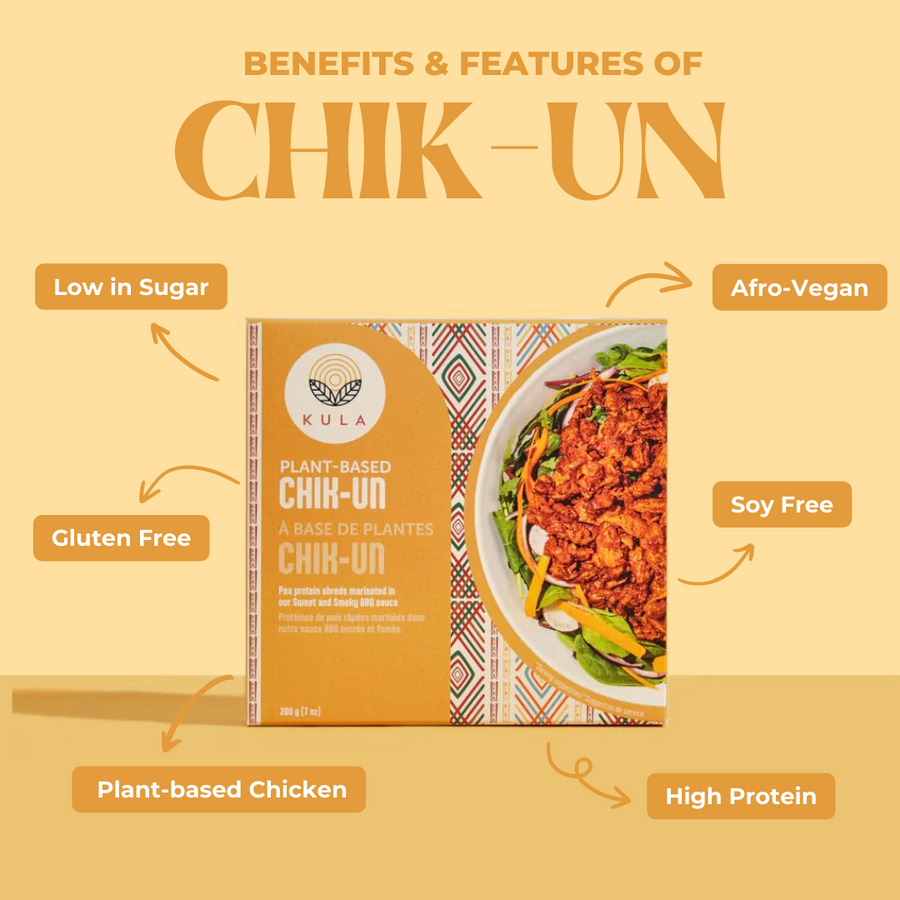Hidden Ingredients in Sugar Free Sauces: What to Watch Out For
Hidden Ingredients in Sugar Free Sauces: What to Watch Out For
Blog Article
Everything About Healthy Food: Advantages of Embracing Plant Based Alternatives
The discussion surrounding plant-based diet plans has actually gotten substantial focus in the last few years. Lots of people are discovering the possible health and wellness advantages, dietary advantages, and ecological impacts linked with these dietary options. As individuals come to be a lot more knowledgeable about their food's influence on health and sustainability, concerns emerge regarding the usefulness of adopting such a way of life. What certain adjustments can one anticipate, and just how might these options reshape not just personal health and wellness yet also the earth's future?
Recognizing Plant-Based Diets
Although many individuals connect plant-based diet regimens mainly with vegetarianism or veganism, these diet plans can encompass a vast array of consuming patterns that prioritize entire, minimally processed plant foods. Such diet plans typically consist of fruits, vegetables, whole grains, seeds, nuts, and vegetables, while getting rid of or restricting animal items. This versatility permits individuals to tailor their dietary choices according to nutritional requirements and individual preferences. Some might take on a mainly plant-based diet while still occasionally consuming meat or dairy, commonly described as a flexitarian strategy. The focus stays on including even more plant foods, which can result in a diverse range of meals and tastes. Comprehending these various analyses of plant-based eating is important for appreciating its availability and charm in contemporary food society.
Health Perks of Plant-Based Foods
The health and wellness benefits of plant-based foods are substantial, offering a nutrient density advantage that supports overall wellness. Research study suggests that these foods can enhance heart health and wellness and play a vital duty in reliable weight management. By integrating extra plant-based choices, individuals may improve their nutritional choices and promote lasting health.
Nutrient Thickness Benefit
Nutrient density plays a vital duty in the health and wellness benefits of plant-based foods, making them a compelling selection for those seeking a well balanced diet plan. Plant-based foods, such as fruits, veggies, legumes, nuts, and whole grains, are often abundant in important vitamins, minerals, and antioxidants while being lower in calories. This high nutrient density allows individuals to consume less calories while still fulfilling their nutritional requirements. Additionally, these foods are packed with dietary fiber, promoting digestive health and wellness and helping in weight monitoring. By incorporating nutrient-dense plant-based options, consumers can improve their general health and wellness, sustain their body immune systems, and reduce the threat of chronic diseases. Eventually, the nutrient density of plant-based foods emphasizes their significance in a health-conscious way of life.
Heart Health And Wellness Enhancement

Weight Management Support
Along with promoting heart health, a plant-based diet plan can considerably help in weight management. This dietary method stresses entire foods such as fruits, veggies, legumes, nuts, and whole grains, which are usually lower in calories and greater in fiber contrasted to animal-based products. The high fiber content helps raise satiety, minimizing overall calorie consumption. Plant-based diet regimens are usually abundant in vital nutrients while low in harmful fats, making it simpler to preserve a healthy weight. Study suggests that individuals that adopt a plant-based way of life tend to have lower body mass indexes (BMIs) and experience even more effective fat burning contrasted to those who consume meat-heavy diets. Welcoming plant-based choices is a strategic option for effective weight monitoring.
Nutritional Value of Plant-Based Components
Plant-based active ingredients are abundant in vital nutrients, providing a diverse array of vitamins, minerals, and antioxidants that add to total health. A comparison of healthy protein sources discloses that while pet products are often deemed exceptional, several plant-based alternatives give sufficient healthy protein and other valuable compounds. Recognizing the nutritional worth of these ingredients can assist people make educated nutritional choices.
Necessary Nutrients in Plants
Nutrient-rich components found in plants supply a diverse variety of crucial minerals and vitamins that contribute significantly to overall health and wellness. These active ingredients are abundant in vitamins A, C, and K, which support immune function, vision, and blood clot, specifically. In addition, plants supply vital minerals such as magnesium, calcium, and potassium, essential for heart health, muscular tissue feature, and bone toughness. The presence of fiber in plant-based foods aids food digestion and promotes a healthy and balanced digestive tract microbiome. Antioxidants, discovered perfectly in vegetables and fruits, assistance fight oxidative stress and anxiety and lower inflammation. Lots of plant foods are low in calories yet high in nutrients, making them an exceptional selection for those looking for to preserve a healthy and balanced weight while guaranteeing ideal nutrient intake.

Comparing Protein Sources
Healthy protein sources vary substantially in their dietary profiles, with plant-based active ingredients supplying distinct benefits. Unlike pet healthy proteins, which frequently have hydrogenated fats and cholesterol, plant proteins have a tendency to be reduced in these undesirable elements. Legumes, nuts, seeds, and entire grains are rich in vital amino acids, fiber, vitamins, and minerals. For instance, lentils give high healthy protein content together with considerable iron and folate, while quinoa is a complete healthy protein, using all nine essential amino acids. Additionally, plant-based healthy proteins are commonly come with by antioxidants and phytochemicals that sustain general wellness. The shift to plant-based healthy protein sources not only improves dietary consumption but additionally straightens with lasting dietary practices, lowering environmental impact and promoting long-lasting wellness advantages.
Environmental Influence of Plant-Based Consuming
As understanding of climate change expands, lots of individuals are checking out sustainable nutritional choices that can considerably lessen their environmental footprint. Plant-based eating has actually become a significant factor to decreasing greenhouse gas discharges, which are mostly associated with livestock production. The cultivation of fruits, vegetables, vegetables, and grains usually calls for from this source less resources, such as water and land, compared to animal farming. Additionally, plant-based diet plans can cause reduced logging, as much less land is required for grazing livestock or expanding animal feed. By changing towards plant-based options, consumers can support biodiversity and advertise healthier communities. On the whole, accepting plant-based eating not only benefits personal health yet also represents a vital action towards environmental sustainability and conservation initiatives.
Conquering Common Misconceptions
While lots of people recognize the advantages of a plant-based diet regimen, a number of mistaken beliefs typically prevent them from totally welcoming this lifestyle. An usual idea is that plant-based diet regimens lack sufficient healthy protein; nevertheless, various plant sources, such as legumes, nuts, and tofu, provide sufficient healthy protein. Furthermore, some assume that this diet plan is expensive, when actually, staples like beans, rice, and seasonal veggies can be quite budget friendly. An additional misconception is that plant-based eating is extremely limiting, whereas it in fact provides a diverse variety of tastes and foods. Finally, many stress that a plant-based diet plan might bring navigate here about deficiencies, yet with proper preparation, individuals can obtain all essential nutrients, including nutrients, while appreciating a wide range of tasty meals.
Tips for Transitioning to a Plant-Based Lifestyle
Making the shift to a plant-based way of life can be an enhancing experience, though it commonly calls for some assistance to navigate the initial adjustments. First, individuals are encouraged to start gradually, including even more fruits, veggies, vegetables, and entire grains into their meals while lowering meat and dairy products intake. Meal preparation is crucial; preparing a regular menu can aid reduce the adjustment and avoid last-minute unhealthy options. Exploring cooking approaches and new dishes can likewise enhance the experience and preserve enjoyment concerning plant-based eating. Additionally, joining support system or communities can give motivation and share beneficial suggestions. Lastly, remaining notified regarding nourishment warranties balanced dishes, preventing deficiencies while cultivating a healthy, enjoyable plant-based way of living.
Delicious Plant-Based Meal Concepts
Discovering delicious plant-based dish concepts can motivate individuals to accept an extra nourishing diet regimen. One preferred choice is a hearty quinoa salad, featuring cherry tomatoes, cucumber, and a spicy lemon-tahini clothing. One more favorite is a mouthwatering lentil stew, loaded with carrots, celery, and fragrant herbs, excellent for a calming supper. For breakfast, overnight oats made with almond milk, chia seeds, and covered with fresh berries supply a nutritious beginning to the day. In addition, a vivid vegetable stir-fry with tofu and a range of colorful veggies can be a fast yet pleasing dish. Creamy avocado salute on whole-grain bread, sprinkled with flavors and seeds, supplies a straightforward yet tasty snack. These meals showcase the variety and richness of plant-based eating.

Regularly Asked Questions
Can a Plant-Based Diet Plan Provide Enough Protein?
The inquiry of whether a plant-based diet regimen can provide adequate healthy protein prevails. Countless resources, including vegetables, nuts, seeds, and entire grains, can satisfy protein needs properly, sustaining a well balanced and nutritious diet for individuals.
Are Plant-Based Diet Plans Appropriate for Kid?
The suitability of plant-based diet plans for youngsters depends upon cautious planning. Adequate nutrients her comment is here should be ensured, consisting of healthy proteins, vitamins, and minerals. With appropriate advice, such diets can sustain healthy development and advancement in youngsters.
How Do I Eat in restaurants on a Plant-Based Diet plan?
Eating in restaurants on a plant-based diet regimen involves seeking restaurants with varied food selections, requesting for modifications, and checking out vegan-friendly choices. Preparation ahead and connecting dietary choices can enhance the dining experience while maintaining dietary selections.
What Prevail Allergens in Plant-Based Foods?
Usual irritants in plant-based foods consist of soy, gluten, nuts, and seeds - Sugar Free Sauces. Individuals complying with a plant-based diet regimen needs to be aware of these allergens and read labels carefully to avoid negative reactions and assure secure consumption
Can Plant-Based Diets Aid With Weight-loss?
Research suggests that taking on a plant-based diet might help with weight-loss as a result of its generally reduced calorie thickness and greater fiber content. This combination can enhance satiation, helping people handle their calorie intake effectively. Many individuals connect plant-based diet plans generally with vegetarianism or veganism, these diets can include a broad variety of consuming patterns that focus on whole, minimally refined plant foods. Nutrient density plays a crucial duty in the wellness advantages of plant-based foods, making them a compelling selection for those looking for a balanced diet plan. Plant-based diet regimens have been shown to considerably boost heart health and wellness, as they typically have elements that support cardio feature. In addition to promoting heart health, a plant-based diet can significantly assist in weight administration. An usual idea is that plant-based diets do not have enough protein; nonetheless, numerous plant sources, such as vegetables, nuts, and tofu, provide enough healthy protein.
Report this page